'Take Care of Maya' trial: Kowalskis testify about personal, economic impact for damages
Maya Kowalski still carries survivor's guilt following her mother's death, she said Friday morning from the stand, wiping away tears as her voice slightly cracked.
She was one of the last people to speak with her mother, Beata Kowalski, and wonders if she'd said something differently, whether her mother would still be here today.
"I feel like if I would have let her feel that I was okay that she wouldn’t have taken the step to end her life to get me out of there," Maya Kowalski said. "I feel like it’s my fault.”
The family is still haunted by bouts of panic, depression and anxiety, as well as the memory of Beata Kowalski, years after Maya Kowalski was discharged from Johns Hopkins All Children's Hospital where she was held in protective custody starting in October 2016, separated from her family for over three months due to allegations of medical child abuse against her mother.
Kyle, Jack and Maya Kowalski all returned to the stand Thursday and Friday to testify about how the experience of Maya's CRPS diagnosis, the treatment at the hospital and Beata Kowalski's death has impacted them and their futures for the jury to hear the personal damage they say the hospital caused them.
Dig deeper: 'Take Care of Maya' trial: Maya Kowalski testifies about hospital experience
Keep reading: Sarasota judge expresses frustrations with attorneys in 'Take Care of Maya' case
The Kowalski family sued All Children’s Hospital in 2018 for false imprisonment, negligent infliction of emotional distress, medical negligence, battery and other claims more than a year after Beata Kowalski took her life following the allegations that she was abusing her daughter. They are seeking $220 million in damages, including $55 million in compensatory damages and $165 million in punitive damages.
The family took 10-year-old Maya Kowalski to All Children’s Hospital in October 2016 after she complained of severe stomach pain, believed by the family to be a relapse of her Complex Regional Pain Syndrome, a disorder that impairs the central nervous system and heightens pain sensations. The illness is sometimes also referred to as Reflex Sympathetic Dystrophy Syndrome.
Maya Kowalski was separated from her family, friends, and community following a Florida Department of Children and Families investigation and ordered by a judge to remain at the hospital for more than three months until she was reunited with her father and brother shortly after her mother’s death.
The attorneys for the Kowalski family will most likely rest their case on Monday, meaning the defense for All Children's will begin calling witnesses to present their defense case before the jury.
Kowalskis testify towards human damages caused by the hospital
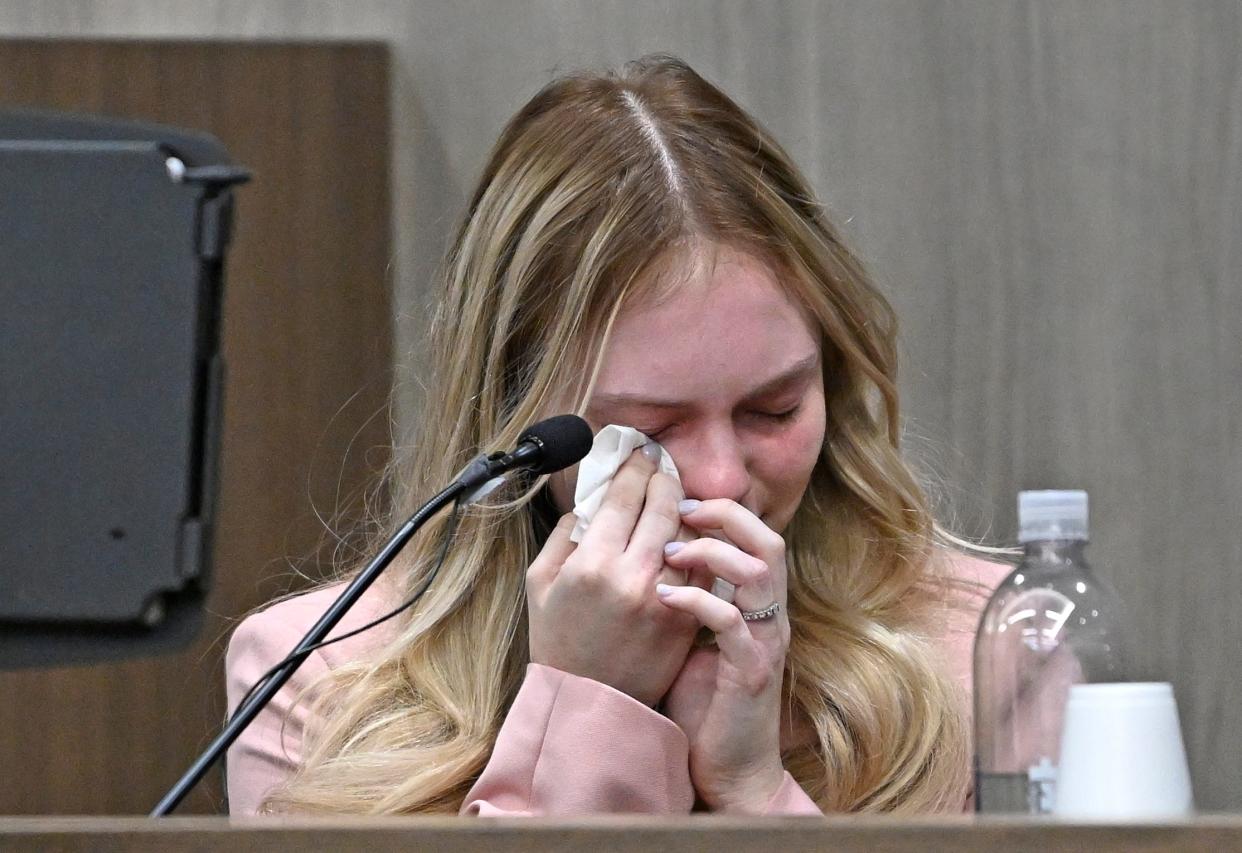
Maya Kowalski was called to the stand for the second time Friday to testify about the physical and emotional impact, mental anguish, loss of capacity of life and the loss of her mother that she's experienced following her discharge from All Children's in January 2017.
Wearing her light pink blazer, Maya Kowalski told the jury she was currently experiencing a pain level of 7 or 8, has new lesions that have formed and has discoloration in her right leg. She also told the jury she suffers from PTSD which can be triggered by the little, everyday things that she encountered during her stay at the hospital, such as unscented hand sanitizer, people wearing scrubs and spaghetti noodles.
“I have really bad depression and all I do is cry every day," Maya Kowalski said, adding that she doesn't want her boyfriend, who she's been with for more than a year, to think she's "crazy like other people in the past have thought." She added she's scared of flare-ups with her CRPS.
"It's like taking care of a baby; you lose a lot of abilities," Maya Kowalski said. "I don’t want to give that life to somebody where they have to take care of me.”
On average, the Kowalskis each have trouble with sleeping. Maya Kowalski indicated she gets about five hours of sleep a night but struggles to fall asleep or wakes up often from nightmares.
Jack Kowalski told the jury that he cries at night after holding it together all day for his children, knowing that "if I sink, we all sink" and that he has to be strong for Maya and Kyle. Night also brings the reminder that his wife is no longer beside him when he rolls over in bed and that he has no one to hug and kiss, but instead he says a prayer to the urn holding Beata's ashes.
"I will never replace what I had," Jack Kowalski said.
He said he almost stopped his car while driving across the Sunshine Skyway bridge after his anxiety skyrocketed from seeing his daughter crying years after Maya Kowalski was released from Johns Hopkins All Children's Hospital.
He recalled the family was driving to St. Petersburg one day when he looked over at his daughter who had started crying and when he asked her what was wrong; Maya looked at him and said, "We're almost there."
At that moment, Jack Kowalski started to panic, understanding what his daughter meant. He thought to himself, "What if we crash, where will they take my kids?"
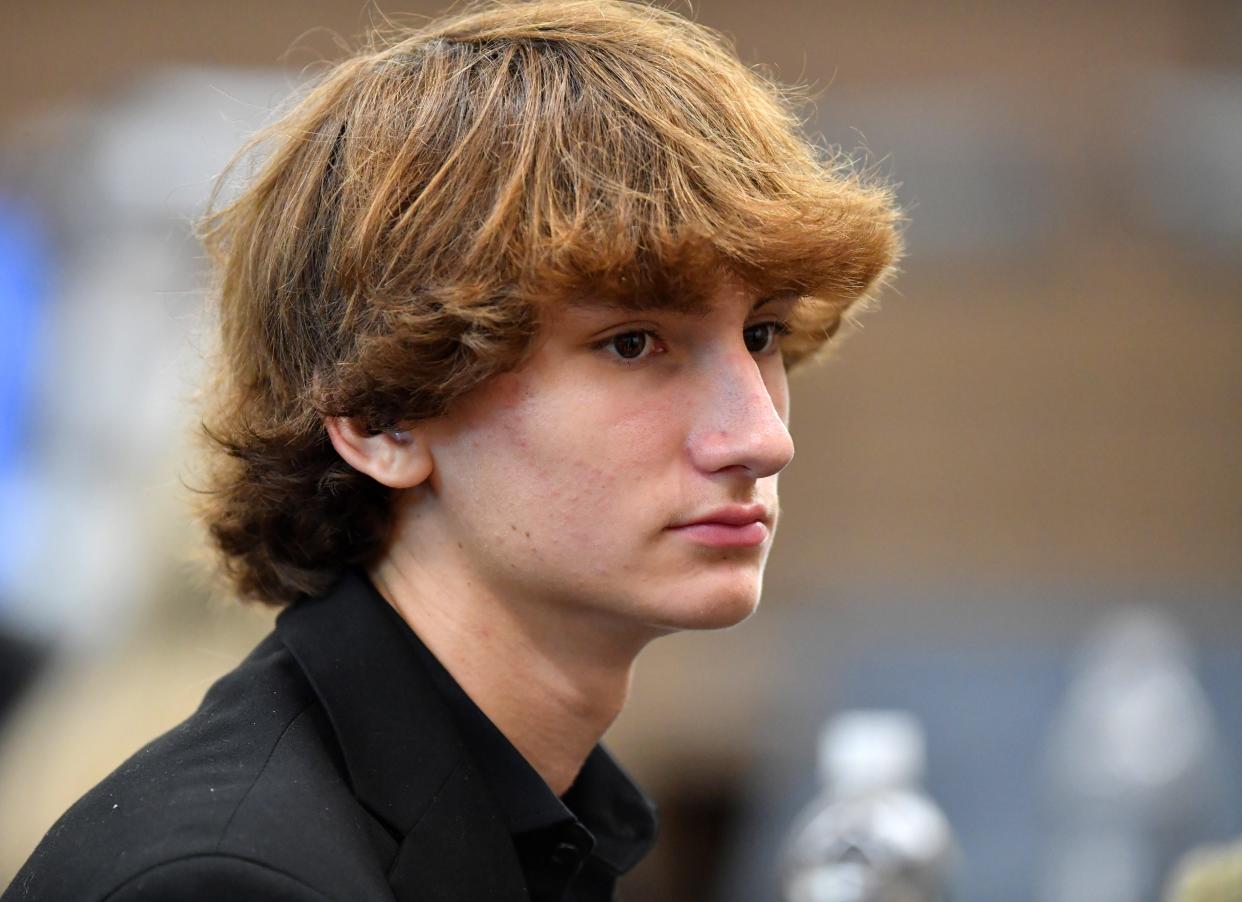
Why did the Kowalskis stay in their home?
One of the biggest questions that’s has hung over the trial as the Kowalskis testified is why they have stayed in their home where memories of Beata Kowalski still bother them.
Jack Kowalski had initially wanted to move out of the home once Maya was back, he said Thursday, but his children had already lost so much, and he didn’t want to take them away from their friends and the support of their community.
Kyle Kowalski said there are times when he breaks down crying at home, especially when he walks into the garage where his mom died or if he catches a whiff of her perfume.
Maya Kowalski has done everything she can to change her room — she’s replaced her white bedsheets for pink so they don’t remind her of the hospital; she’s changed her bed where her mother used to sit with her, laptop in hand, when she was having sleepless nights because of her pain; she’s painted the walls a different color and re-decorated the room multiple times; but the memories still find a way to spill through.
She’s ready to move out of the home. She's also ready for this chapter of her life to be resolved so she can go to school and move on with life and to stop feeling like she's still stuck inside her 10-year-old self.
More trial coverage: 'Take Care of Maya' trial: Jury hears Maya's former attorney, doctor and social worker
'Take Care of Maya' trial: Father takes stand, Sarasota judge denies 2 mistrial motions
Keep up-to-date: 'Take Care of Maya' trial: Pain medicine specialist testifies about Maya's crippling pain
Kyle Kowalski said his whole family struggled with being separated from Maya when she was in the hospital, and the three still have a lot of anxiety about hospitals and doctors.
Maya Kowalski broke her pinkie finger while playing football with her brother and she caught the ball wrong. She waited four days before going to a surgical center where her aunt worked, because she felt she would be okay with her aunt in the operating room.
Jack Kowalski also recalled the incident and said his first thought was whether to call his attorney before going to the hospital. He also checked his surveillance cameras to make sure it was caught on tape, just in case.
In another incident, Kyle Kowalski was outside when he became entangled in a dog’s leash that caused him to fall and dragged him on the ground, causing bruising on his legs. Jack Kowalski said he was terrified of being accused, adding he’s hypervigilant and knows he’s probably overthinking everything.
When her CRPS relapsed in 2020 and she needed to go to Arnold Palmer Hospital in Orlando, Maya's family took extra precautions, asking their primary care physician, Dr. John Wassenaar, to call and explain her situation before she went. The entire week, she couldn’t wait to get out.
Economic and personal damages: Experts testify about the quantitative monetary loss for the family
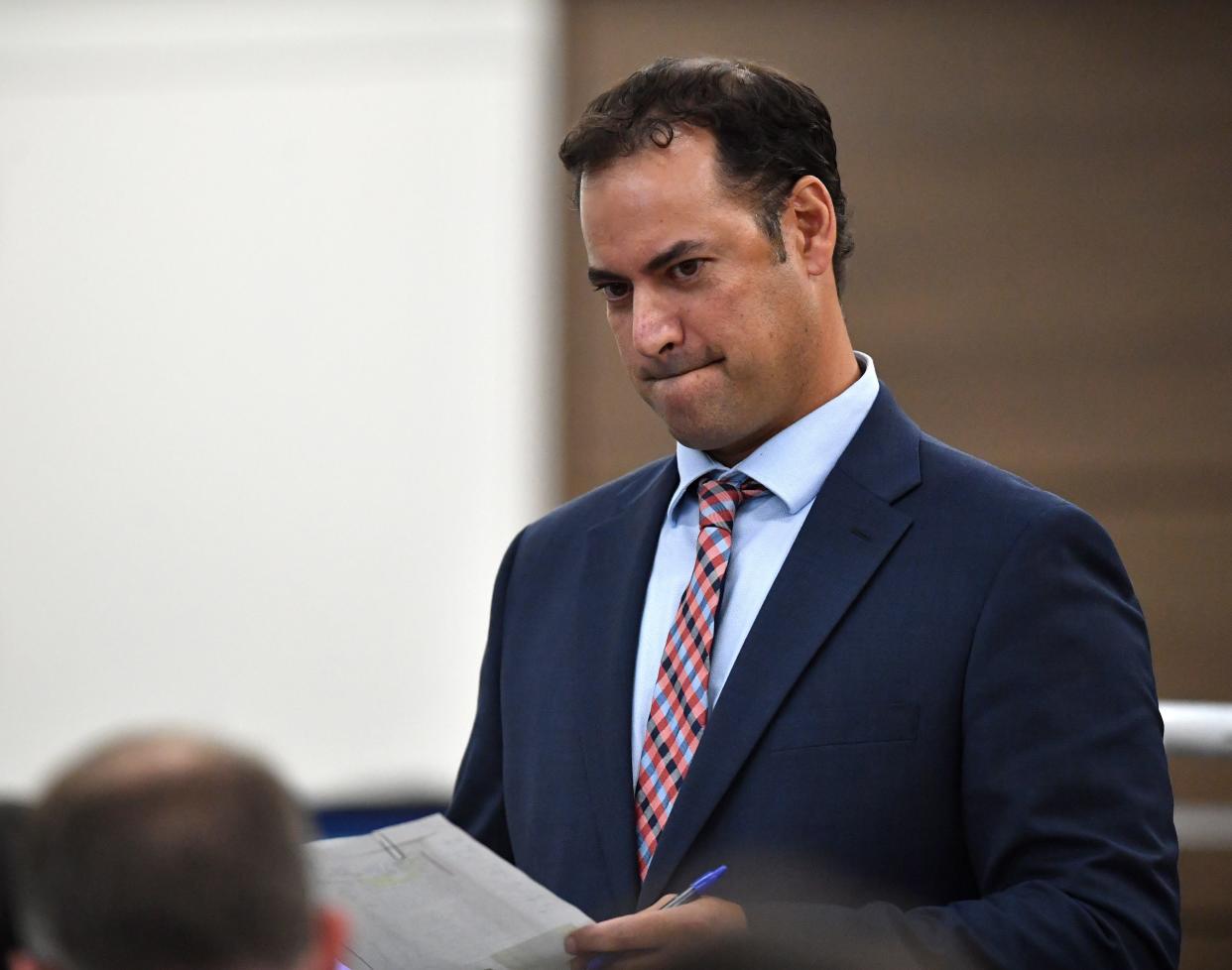
Kristi Kirby, an economist, was hired to evaluate economic damages for the Kowalskis related to calculations for the loss of support and replacement of household services for the surviving family members.
Taking into account the increase in medical costs that will occur in the future and other factors, she calculated that the total expenses were more than $885,000.
Regarding Maya Kowalski's possible future loss of earning capacity, Kirby calculated four scenarios, including a full loss of earning capacity through the age of 65, and a partial loss through age 70. Her estimates ranged from a low of about $1.5 million to a high of more than $5 million.
Age | Total loss or 50% reduction in earning capacity | Range |
65 | Total loss of earning capacity | $3,015,765 — $4,358,011 |
70 | Total loss of earning capacity | $3,344,625 — $5,079,783 |
65 | 50% reduction in earning capacity | $1,507,883 — $2,179,006 |
70 | 50% reduction in earning capacity | $1,672,313 — $2,539,892 |
All Children's attorney Ethen Shapiro questioned Robert Paul Tremp Jr., an expert in vocational rehabilitation, about his conclusions regarding Maya's college prospects, given her condition at the time she arrived at the hospital.
Shapiro pointed out that within the four months that Maya Kowalski was receiving ketamine infusions in the spring of 2016, she was still indicating she had 10 out of 10 pain.
"Is she a freight train heading to college?" Shapiro asked, echoing verbiage Tremp had used, and pointing out Maya hadn't gained any weight in the months she'd been on ketamine.
Shapiro also stated in his questioning that Maya wasn't in school from July 3, 2015, to her admission to the hospital, as well as wheelchair bound the entire time.
"And look at her now," Tremp said. "Look at what she overcame. She missed school, she's been through it all and now she's trying to get through college, two years of college in high school."
Shapiro said he wouldn't argue the fact that Maya Kowalski persevered after being taken off all the medications she'd been on prior to her admission to All Children's.
"You will get no argument from me, sir, that once she got off these dangerous and unnecessary medications with perseverance becoming a freight train heading towards college after the hospital, that's when she started doing this," Shapiro said.
Another mistrial motion avoided after family attorneys forge ahead
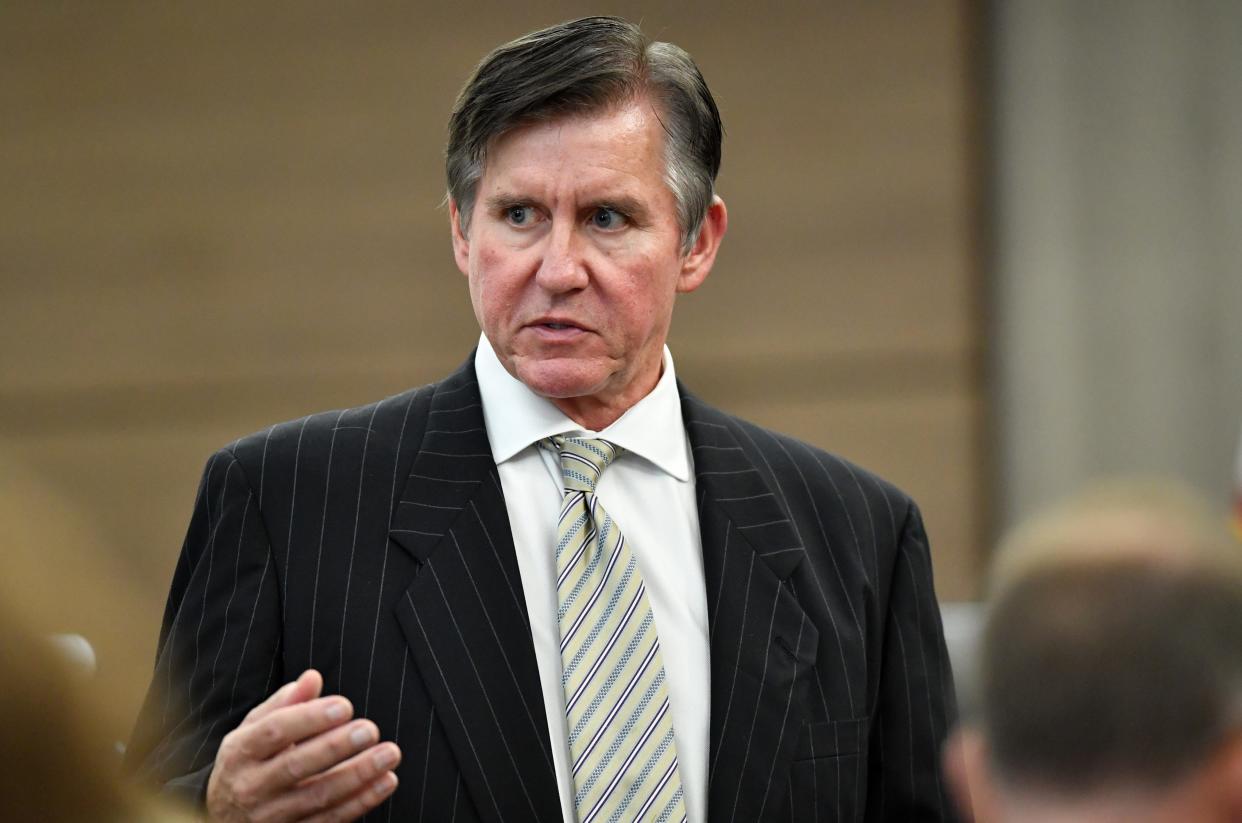
The Kowalski family attorneys continue to forge ahead with their case after a possible mistrial motion was omitted Thursday following the defense for Johns Hopkins All Children’s Hospital having a misstep with questioning.
While defense attorney Shapiro was questioning Jessica Blackrick, who was appointed in October 2016 to be Maya Kowalski's guardian ad litem, he mentioned that the Kowalskis hadn’t raised objections during a dependency hearing about the shelter-in-place orders.
After a brief sidebar with Sarasota Circuit Court Judge Hunter Carroll, the judge asked both the jury and witness to step out of the courtroom so the attorneys could discuss the issue.
Anderson argued that the jury could be under the impression that there were notes that contradict the witness since Shapiro held up the DCF note and referenced it during his questioning, as well as introducing the idea of who was in charge and at what point, which went against an order by the judge.
Co-counsel for the family, Nick Whitney, pointed out that the note Shapiro referenced didn't even include the information about the Kowalskis' not objecting to the shelter order.
Shapiro apologized to the Court, stating that the note indicated the witness had just come from the dependency hearing in 2016 and he was attempting to set up his question believing that the plaintiffs had opened the door when they asked about the no contact order.
More: 'Take Care of Maya' trial: Sexual abuse allegations arise, could be added to complaints
What's happening: Jury hears from family physician, psychologist during third day of 'Take Care of Maya' trial
Judge Carroll said he didn't understand how Shapiro's question was even asked based on the note.
"Given the nature of the defense, let's not talk about the dependency ... you misrepresent a note on a question that you know can't be asked," Carroll said.
Asked if the plaintiffs would be moving for a mistrial after the lunch hour, Anderson said he wouldn’t and added he wouldn’t be seeking a curative instruction either, as it would simply further spotlight the issue.
Sally Smith testifies through video depositions
Dr. Sally Smith, a pediatrician and the former medical director of the Pinellas County Child Protection Team, did not appear in court Thursday with Anderson playing several of her depositions for the jury.
Smith was initially a part of the Kowalskis’ lawsuit for her role in investigating the Kowalskis after medical staff at the hospital reached out with suspicions of medical child abuse. But she is no longer a part of the case after she and Suncoast, Inc. settled with the family for $2.5 million, according to media reports.
Smith testified in the deposition that she did introduce herself to both Beata and Jack Kowalski, saying that she was a pediatrician with the child protective team. Smith added she was wearing business casual clothes and an ID badge that included her photo and the hospital’s logo.
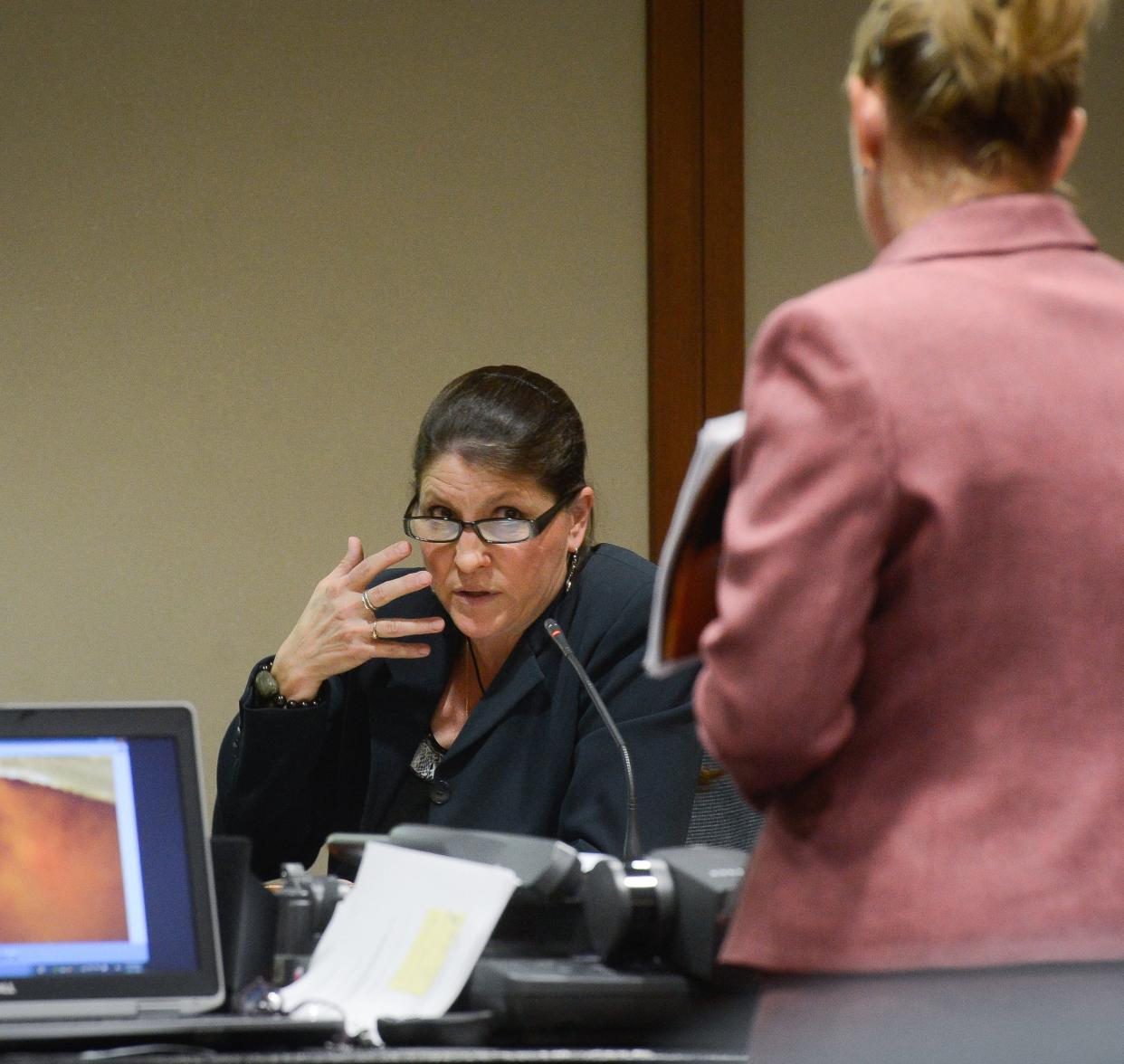
Smith also said she never represented to the Kowalskis that she worked for the hospital.
During Jack Kowalski’s testimony on Oct. 3, he recalled meeting Smith for the first time on Oct. 13, 2016, when she came into the room wearing a white lab coat with the hospital’s logo while he was trying to help Maya. He described Smith as “a woman with black hair, cigarette voice” who walked into the room and began asking him questions without introducing herself. He had assumed she was medical staff, Jack Kowalski said.
After 10 minutes, Smith walked out of the room and a nurse came in and told Jack Kowalski he was no longer allowed to be there and had to leave as Maya was in protective custody.
Maya Kowalski also recalled during her testimony Monday that Smith came in wearing a white lab coat bearing the hospital’s logo and that no one differentiated Smith from other doctors at the hospital.
Opening statements: Trial begins in 'Take Care of Maya' case, attorneys lay out what to expect
In case you missed it: Venice family drops social worker from lawsuit against All Children's Hospital
Guardian ad litem for Maya Kowalski testifies social worker ended supervised calls with mother
Jessica Blackrick was working for the Sarasota courts between July 2016 and August 2020 when she was appointed to be the guardian ad litem for Maya Kowalski following the first dependency hearing.
Blackrick’s role was to advocate for Maya, she said on Thursday. As part of her role, she supervised a few phone calls between Maya and Beata Kowalski, noting that she only saw Maya in person once. Blackrick would call the hospital and social worker Catherine Bedy would facilitate the calls between Blackrick, Maya and Beata Kowalski, she said.
Blackrick confirmed she never delegated the supervised calls to Bedy or anyone else at the hospital and that there were no limits on how often or how long the calls could take place.
When Beata Kowalski requested to schedule a call on Thanksgiving, it was Bedy who said she was too busy to schedule a call, according to Blackrick. When Beata Kowalski was able to speak with Maya the day after Thanksgiving, at the end of the call she said a prayer.
Following the call, Bedy told Blackrick that the prayer was a way to extend the call, to which Blackrick replied that Beata Kowalski had the right to pray with her daughter. When Blackrick asked about scheduling the next call, Bedy said she was going to end the calls and Blackrick said there were no more supervised calls.
Gabriela Szymanowska covers the legal system for the Herald-Tribune in partnership with Report for America. You can support her work with a tax-deductible donation to Report for America. Contact Gabriela Szymanowska at gszymanowska@gannett.com, or on Twitter.
This article originally appeared on Sarasota Herald-Tribune: Kowalski family testifies to personal impact in 'Take Care of Maya' trial


